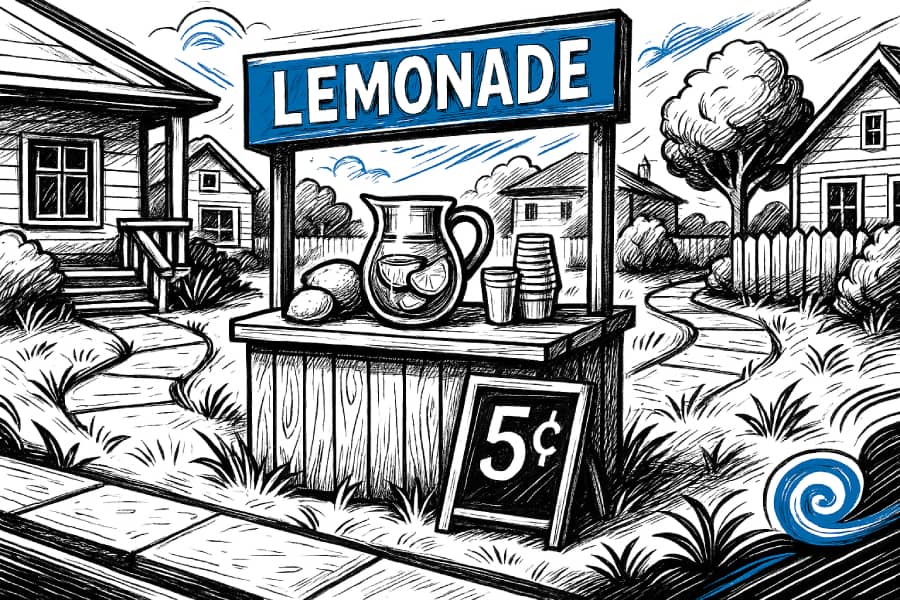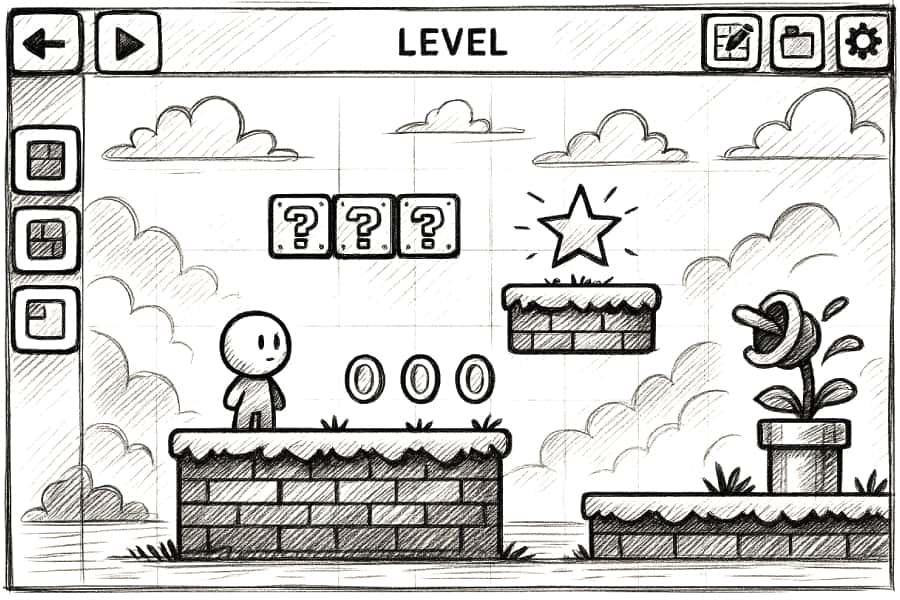What does it take to be a game designer?
Game designers don't just come up with cool ideas for games and send them off into the void; they make those ideas work. They're the ones doing the planning, solving problems with how the game feels to play, and they're the ones who are responsible for the overall architecture of play. If you're wondering what it takes to be a game designer, you're going to need to know what game design itself involves, so let's break it down.
What does a game designer actually do?
Imagine a new town is being built. The "designer" of a town is the town planner.
It is the role of a town planner to figure out exactly what the town needs, where everything can and should go, and how many people are expected to live in that town and how many will be visiting or passing through that town.
They need to think about the town as a whole and the overall experience that will make the town a great place to live or, in the case of tourist towns, a great place to visit for a short period of time.
Now that the planning is out of the way, someone needs to build this thing. For a town, they're the architects, engineers, and construction workers. For a game, that's the programmers and artists.
They're diving into the technical details of what the town planner has asked for and bringing them into existence in a way that is actually possible in reality and that looks great and fits with the intended aesthetic.
Just like the town planner, the game designer is responsible for making sure that there is an overall vision and that it feels, flows, and should ultimately function as best it can to meet that vision.
How about an example?

Just like a town planner always having to account for a growing town or city and suggest changes where they're needed, the game designer must do the same.
For a game designer, this means that you're always paying attention to how the game feels after the initial designs/plans and that you're iterating and adapting to anything that comes up.
Let's say that you've decided to make a game where you run a lemonade stand out the front of your house. You keep it simple; it's a sunny day and pedestrians walk by.
It's the player's job to hand out drinks to anyone that stops by and you're trying to make as much cash as you can before it gets dark.
You build it (or someone builds it for you) over the course of three months and it's okay, but it feels a little lacking. It needs something more.
Your job as the game designer is to come up with new features or mechanics that will keep things interesting but without having to spend yet another three months (or worse) making it more fun.
So how do I do that?
There's a lot of different things you can do, but a good rule of thumb is trying to find small changes or additions that will have a big impact on fun.
First idea: what if you can also sell orange juice and it's your job to guess what the given customer would prefer? Might be interesting, but might also just feel like more of the same.
Next: how about a different type of customer? Perhaps an e-bike rider who flies down the street and now you might have to try react or perfect the timing to get them to stop and buy from you.
Then you think: what if you add dog walkers and the dogs can randomly knock over your signs or cause damage to your store? But is that fun or does that feel punishing?
You go on: what about "permits"? Time to time you'll hear on the news of a local town shutting down a kid's lemonade stand for not having permits and the community standing up for them.
Maybe permits are a good idea? How can they be fun though? Maybe permits are optional, but inspectors will walk down the street at random and you have to try and hide your lemonade stand before they get too close and you never bought a permit.
The ideas keep swirling and it's your job to try and spot these opportuntities and to rule out things that probably won't be fun, even if it means removing something that you've already made.
You pass it along to the rest of the team to prototype and keep on iterating from there until you're happy with how everything feels as a whole.
How do I get good at it?
Really good designers (and realistically this applies to a lot of other disciplines too) don't just think about the exact game that they're working on at the time, they know about and consider all sorts of games and draw upon ideas, mechanics, and inspiration from them too.
Every different game and genre you're exposed to will give you something new that you can think back on when working on a new game or new ideas for an existing game.
If you had 100 hours to dedicate to improving your game design knowledge, you will get a lot more value out of playing 100 different games for one hour each (or 50 games for two hours each, etc) instead of playing one game for the full 100 hours.
Yes, in 100 hours you will probably deeply understand that game, but it's not going to be too valuable for you unless your goal is to design a game that is very close to the one you've just spent all that time playing.
Having that breadth of mechanics, systems, ideas, and themes on hand will also help you describe a game to another designer, developer, and even potential players.
Let's take smash hit Balatro for example, instead of thinking "let's make a poker game and see where it goes from there." The developer might've started out with something like, "what if I made something a bit like Slay the Spire, but instead of TCG-like cards, we're using actual poker hands for the battles?"
That kind of blending happens much more easily when you've played a lot of different games because you might spot something across games or genres that you think could work well together but might otherwise be unorthodox.
I love games; this sounds great
Loving games isn't the same as loving designing games and if you're this far into the post, you might still be thinking it sounds like somthing you'd enjoy, but the truth is you're just not going to truly know until you get into it.
You need to care about the design aspect but above that, you need to be able to articulate everything about the design you're envisaging with your team in order for them to understand what it is you actually want made and to get onboard with your vision.
If you're not a people person or you're not really fond of communication in general, you're going to need to work on that before you can realistically do this as a job. So it's something to consider when thinking about this pathway.
How do I get started?

My recommendation is just to start doing it. There is no substitute to experience.
You can read books on the subject, you can take a course, you can watch 100 videos, but it takes actually doing it to really have it all sink in.
You don't have to start with anything massive. You can start as simple as designing a level for your favorite game and seeing if you can make it fun; Super Mario Maker 2 might be a great place to start for a well-known side-scrolling platformer that you can easily make levels on.
You could jump into a spreadsheet and make games using the cells or formulas and pass it back and forth to playtest.
Remember, game design doesn't just mean digital. You can make board games. You can scrawl text onto hand-cut cards and play your own card game. You can make physical/sports games using balls and your own rules.
You can alter the rules to a popular game to see if you can make it even more fun. What about basketball but instead of one hoop each side, there's a second bonus hoop worth twice the points that you can only shoot from outside of a certain range?
You can start making a game from scratch and focus on a single mechanic to see if it's fun. Maybe you've thought of a really cool jump-and-dash mechanic you think might be fun so you build that and test it out.
Too many ideas and not sure where to start? Take a look at upcoming game jams and go from there.
Just start doing it. Build things, get them out there, get feedback. Build more things.
You're probably never going to have that perfect idea (or if you do, the first version probably won't be so perfect when its actually built), so just start.
The more you do, the better you'll get.
Don't wait. Start small, start now.
First published March 30, 2025